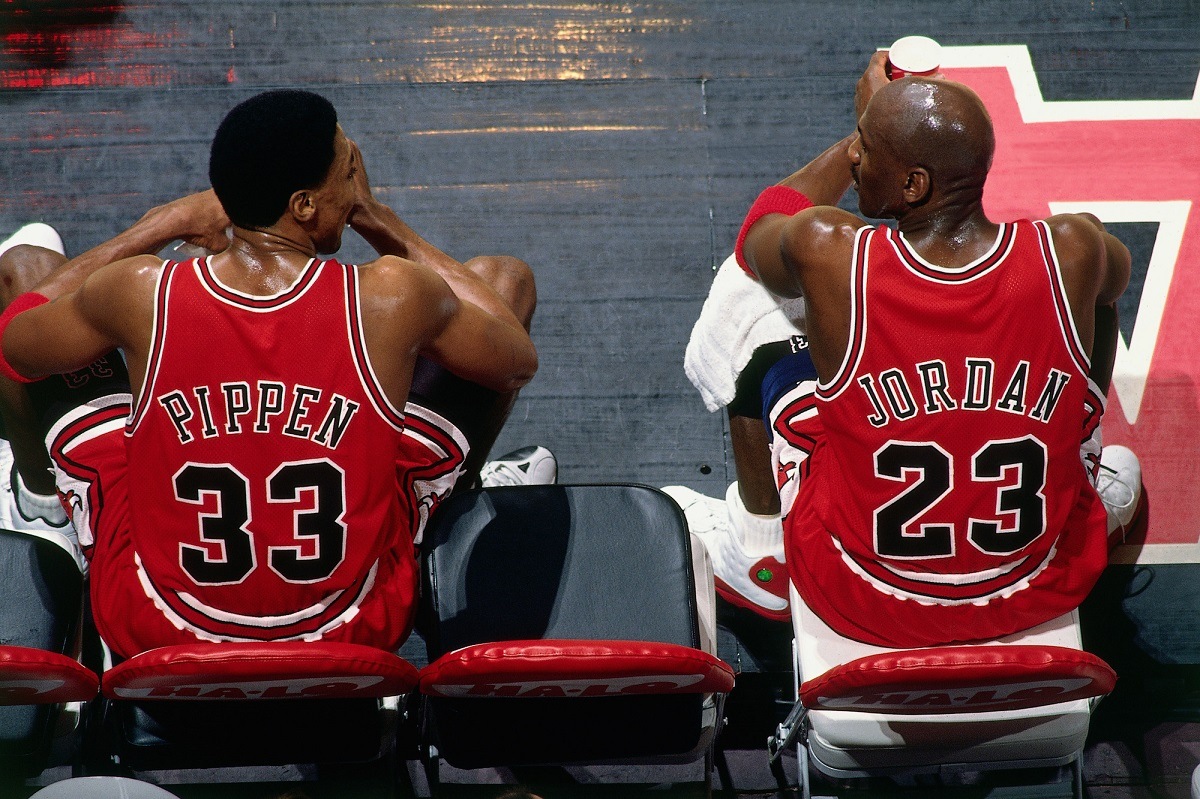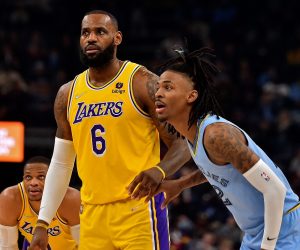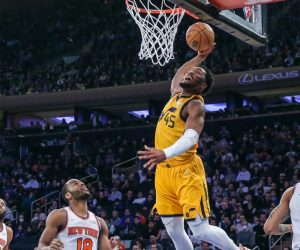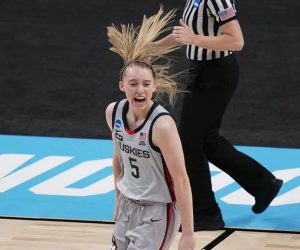ESPN aired the first two episodes of “The Last Dance,” the documentary about Michael Jordan and his final season with the Chicago Bulls in 1997-98 as they sought to win their sixth championship and complete a second three-peat. The first episode revealed Jordan’s origin story from the freshman named “Mike” who hit the game-winning shot for North Carolina to win the 1982 NCAA basketball championship, to joining a Chicago Bulls team dubbed the “Cocaine Traveling Circus” during the final days of the NBA’s hard-partying era.

Before the 1997-1998 season started, general manager Jerry Krause intended on dismantling the team. Team owner Jerry Reinsdorf convinced Phil Jackson to return for one more season to coach the Bulls. However, Krause was adamant that it would be Jackson’s final season in Chicago.
During the back-end of the Bulls dynasty in the 1990s, a huge rift formed between the team (players and coaches) and the front office (Krause). The team had won back-to-back titles and had the greatest basketball player in history, yet Krause intended to break up a dynasty that yielded five championships.
Pretty much everyone in Chicago knew that once Jackson left Chicago, Jordan would retire. Jackson dubbed their final season together as the “The Last Dance” in the team handbook, which also inspired the title for ESPN’s 10-part documentary series.
ESPN aired “Episode 1” and “Episode 2” on Sunday, which netted its highest-ever rating for a documentary with 6.1 million viewers. Without sports during the coronavirus pandemic, fans were eager to tune in to this highly anticipated story.
Meet the Villain: Jerry Krause
General manager Jerry Krause started out as a MLB scout with the Chicago White Sox. Owner Jerry Reinsdorf hired him, despite everyone in the league advising him not to because of Krause’s caustic personality.
Krause did the job he was hired to do, but his resentment increased as the Bulls won multiple championships, and the players and coaches got all the credit and accolades.
“Organizations win titles, not players,” Krause told a reporter while summing up his thinking on the matter.
The resentment and desire to dismantle the Bulls and start over from scratch became the root of what made the tension of that season so severe.
“We’re entitled to defend what we have until we lose it,” said Jordan. “If we lose it, then you can say let’s change.”
Everyone thought the Bulls should stay together until they finally lost.
“We realized [that] other than Michael, the rest of the guys were probably at the end of their high-productive years,” Reinsdorf said. “We realized, maybe this is the time to do a rebuild, and not win a sixth championship.”
Mike Jordan —> Michael Jordan
As a freshman at North Carolina, Jordan hit the winning shot to win the 1982 March Madness championship. When he first arrived in Chapel Hill, everyone knew him as “Mike” Jordan. After he hit the shot, Michael Jordan was born.
Coach Dean Smith told Jordan to go pro after his junior season. It’s sort of crazy to think that he was a 50/50 shot at staying in college for his senior year until Smith convinced him otherwise.
Jordan went #3 in the 1984 NBA Draft. Hakeem the Dream from Houston went #1, which everyone expected. The Portland Trail Blazers already had Clyde Drexler, so they picked Sam Bowie from Kentucky instead. Bowie will be forever linked with Jordan. The Bulls swooped in and picked Jordan with the third pick.
At the 1984 Olympics in Los Angeles, Jordan led Team USA to a gold medal in his first time playing in front of a global audience. Head coach Bobby Knight called Jordan the best basketball player he’s ever seen.
The Traveling Cocaine Circus
Jordan arrived in the NBA at the tail end of the “cocaine years” that plagued the league during its low point in the late 1970s.
The Bulls were the least popular team in one of the greatest sports cities in America. Chicago rallied around the Cubs, Bears, Blackhawks, and White Sox, but it wasn’t until Jordan arrived in 1984 that the city embraced its lackluster basketball team.
During his rookie season, Jordan made a quick impression on his teammates. Within two weeks at training camp, Jordan emerged as the best player on the team despite the fact he had yet to play a preseason game.
Known as the “Traveling Cocaine Circus” at the time Jordan joined, the Bulls embodied most of the worst traits in the NBA in the early 1980s.
Jordan told a story about the first time he saw cocaine. Dean Smith ran a clean program at North Carolina, so a young Jordan never experienced the high-flying lifestyle before he arrived in the NBA. During a preseason game in Peoria, the team holed up at a hotel. Jordan went looking for his teammates and they were all partying in one room.
“You got your lines over here, you got your weed smokers over there, and you got your women over here.”
Jordan remained true to his craft and just said no.
By Jordan’s third NBA game, the league took note of the Chicago Bulls rookie. He led a fourth-quarter comeback in a rivalry game against a veteran Milwaukee Bucks squad.
By the time he won the slam dunk contest, the legend of Air Jordan had already taken flight.
The Last Dance: Episode 1 Quotes
- “We created an image that people want to be part of, and that’s all you can hope for.” — Coach Phil Jackson
- “What’s unique about this dynasty is that we have Michael Jordan.” — Teammate Steve Kerr
- “Jordan is the ultimate sports Alpha male.” — Reporter Michael Wilbon
- “The relationship with me becomes such a circus, there was no chance at reconciliation.” — Coach Jackson speaking about Jerry Krause
- “Sorry about the phone bill. Please send me some stamps.” — Jordan in letter to his mother
- “I was better than he was… for about two weeks.” — Los Angeles Lakers forward James Worthy
- “Michael Jordan is the only player that could ever turn it on or off. And he never frickin’ turned it off.” — UNC assistant coach Roy Williams
- “Everyone on the Bulls team knew he was the best player in a two-week period.” — Former Bulls GM Rod Thorn
ESPN will continue to air two episodes of the Michael Jordan documentary, “The Last Chance,” every Sunday for the next four weeks. Check your local listings for details.












Great recap…and love the list of quotes at the end.